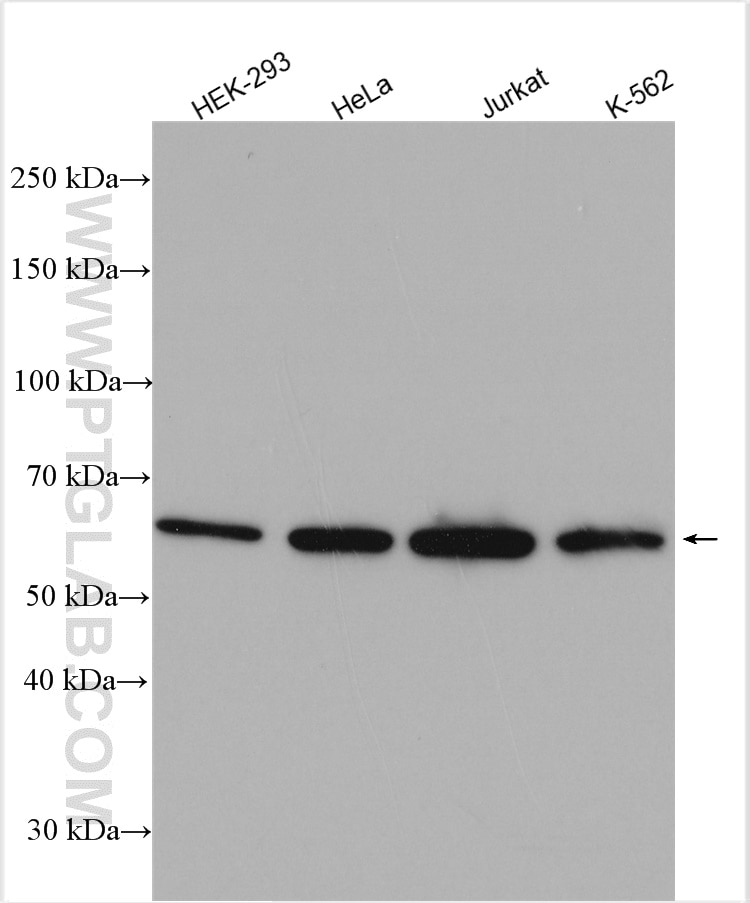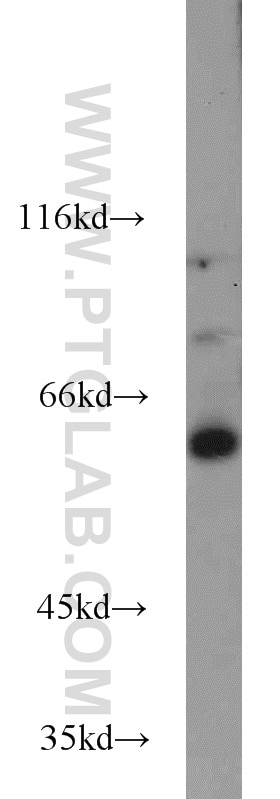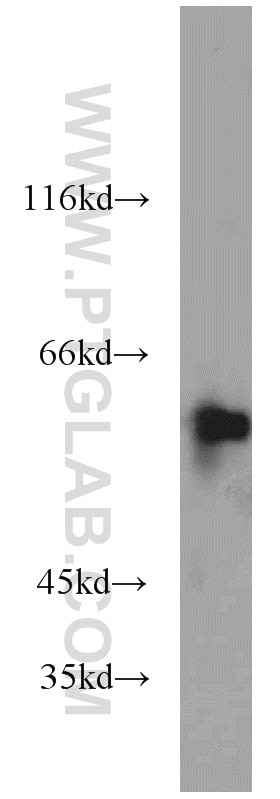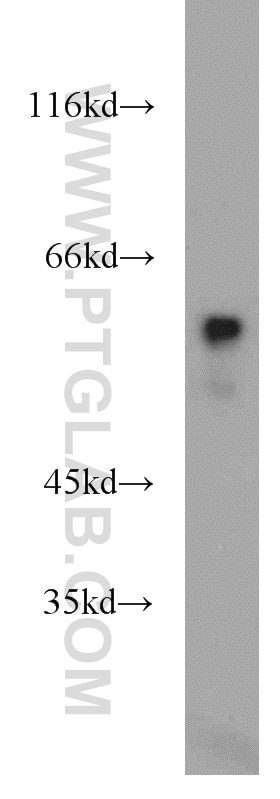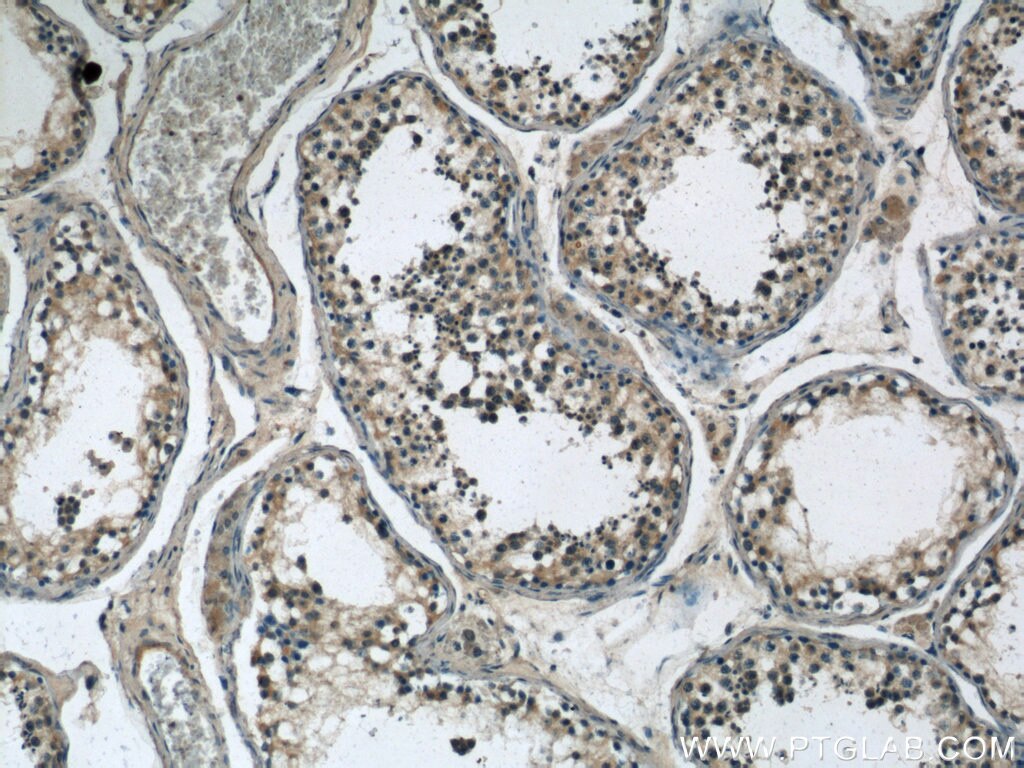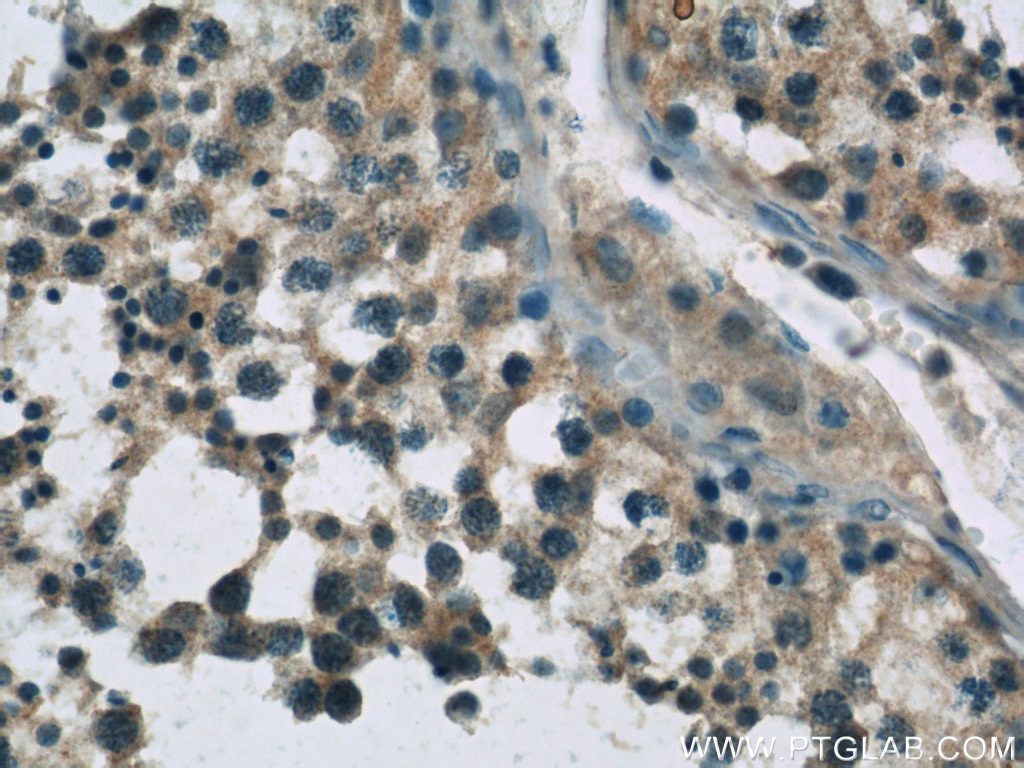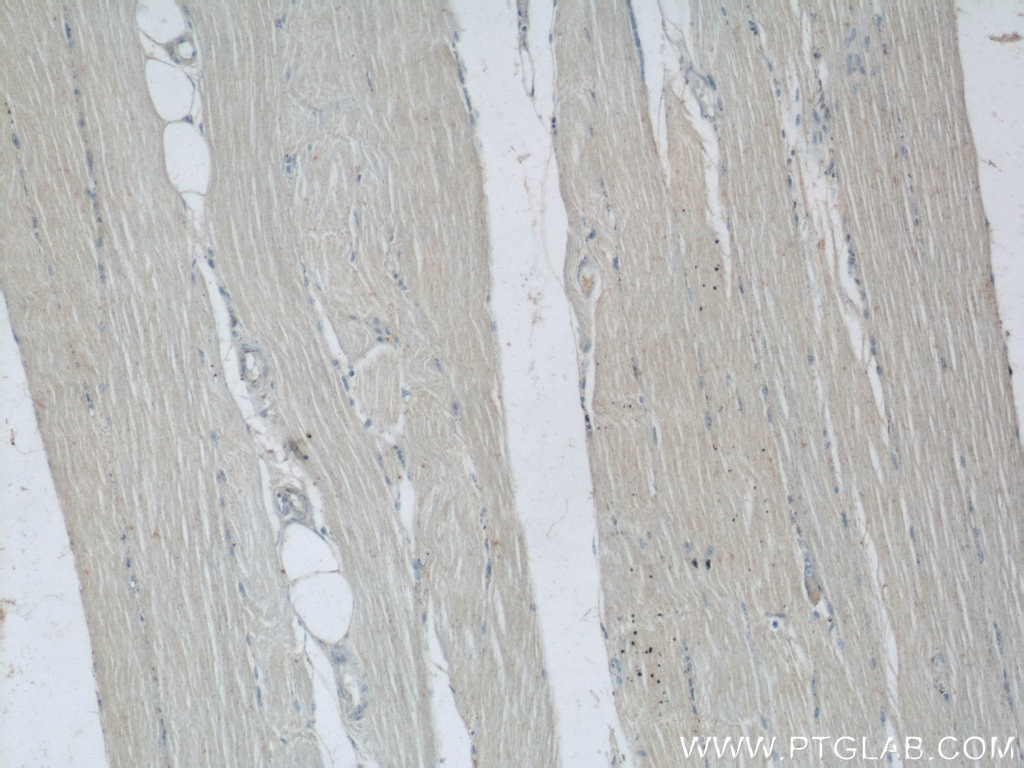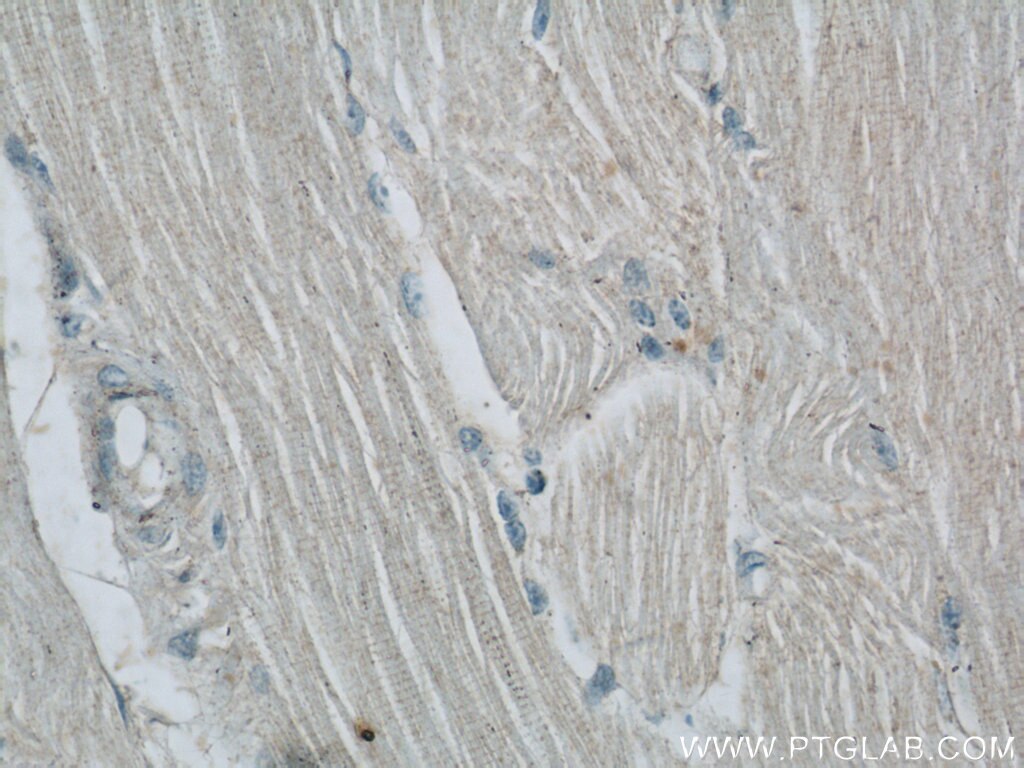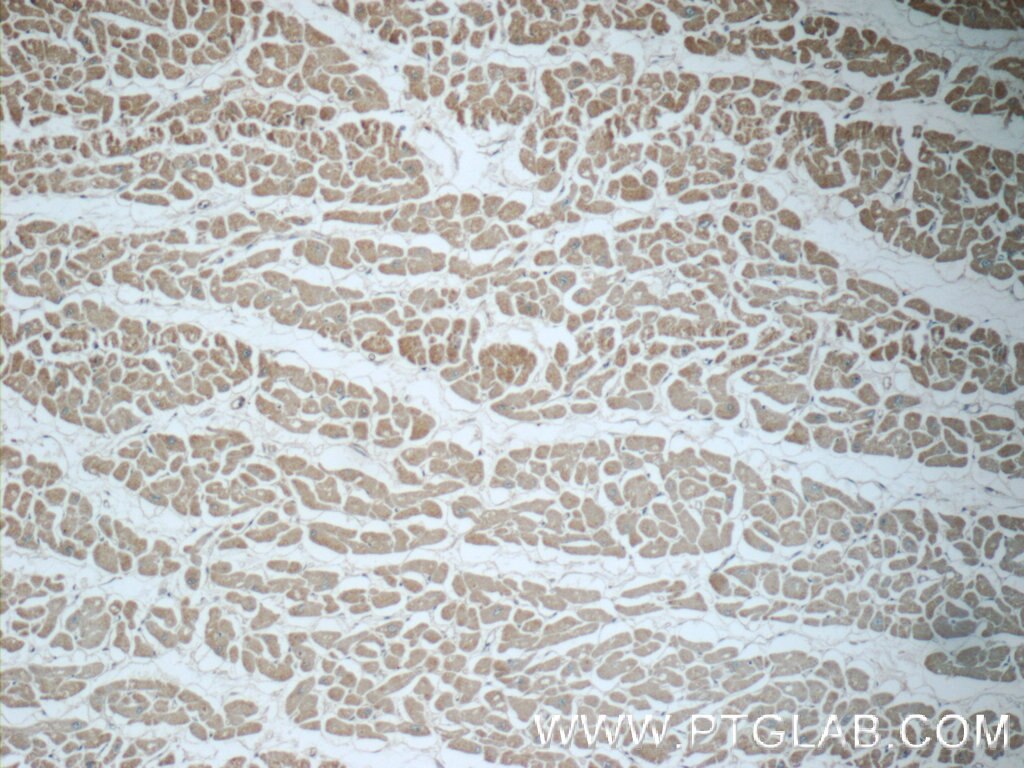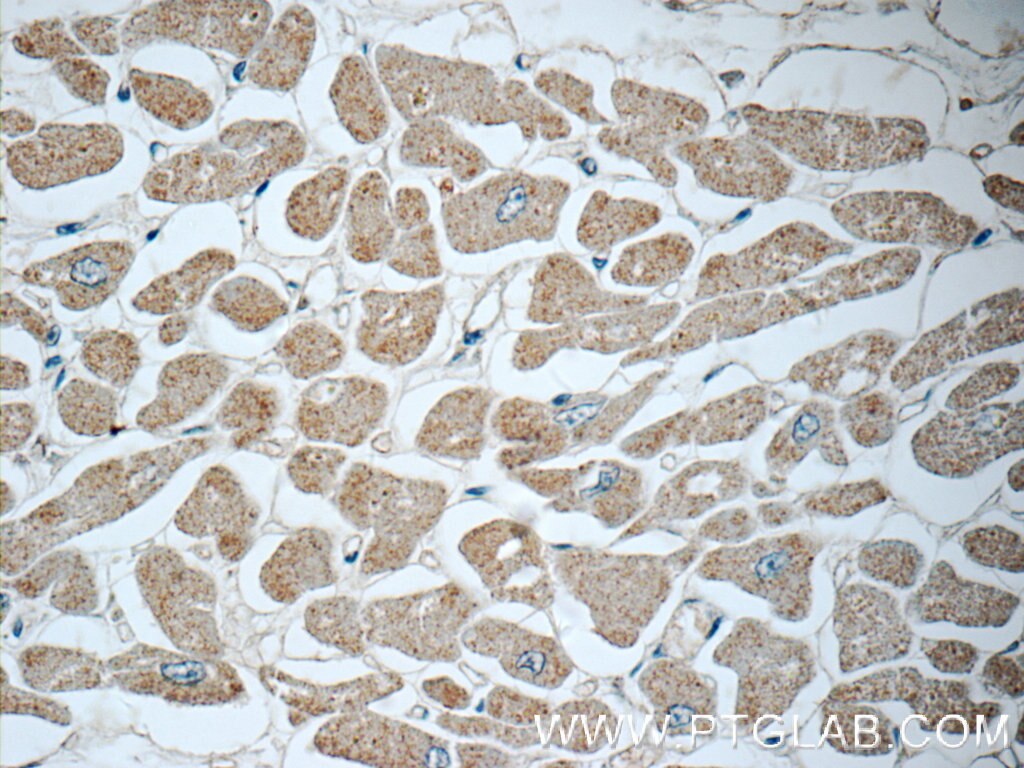UPF3B Polyclonal antibody
UPF3B Polyclonal Antibody for IHC, WB,ELISA
Host / Isotype
Rabbit / IgG
Reactivity
human, mouse, rat
Applications
WB, IHC,ELISA
Conjugate
Unconjugated
Cat no : 23301-1-AP
Synonyms
Validation Data Gallery
Tested Applications
| Positive WB detected in | HEK-293 cells, mouse brain tissue, K-562 cells, Jurkat cells, HeLa cells |
| Positive IHC detected in | human testis tissue, human heart tissue, human skeletal muscle tissue Note: suggested antigen retrieval with TE buffer pH 9.0; (*) Alternatively, antigen retrieval may be performed with citrate buffer pH 6.0 |
Recommended dilution
| Application | Dilution |
|---|---|
| Western Blot (WB) | WB : 1:1000-1:6000 |
| Immunohistochemistry (IHC) | IHC : 1:20-1:200 |
| It is recommended that this reagent should be titrated in each testing system to obtain optimal results. | |
| Sample-dependent, Check data in validation data gallery. | |
Published Applications
| IHC | See 1 publications below |
Product Information
The immunogen of 23301-1-AP is UPF3B Fusion Protein expressed in E. coli.
| Tested Reactivity | human, mouse, rat |
| Cited Reactivity | human |
| Host / Isotype | Rabbit / IgG |
| Class | Polyclonal |
| Type | Antibody |
| Immunogen | UPF3B fusion protein Ag18568 |
| Full Name | UPF3 regulator of nonsense transcripts homolog B (yeast) |
| Calculated Molecular Weight | 483 aa, 58 kDa |
| Observed Molecular Weight | 58 kDa |
| GenBank Accession Number | BC121017 |
| Gene Symbol | UPF3B |
| Gene ID (NCBI) | 65109 |
| RRID | AB_2879249 |
| Conjugate | Unconjugated |
| Form | Liquid |
| Purification Method | Antigen affinity purification |
| Storage Buffer | PBS with 0.02% sodium azide and 50% glycerol pH 7.3. |
| Storage Conditions | Store at -20°C. Stable for one year after shipment. Aliquoting is unnecessary for -20oC storage. 20ul sizes contain 0.1% BSA. |
Protocols
| Product Specific Protocols | |
|---|---|
| WB protocol for UPF3B antibody 23301-1-AP | Download protocol |
| IHC protocol for UPF3B antibody 23301-1-AP | Download protocol |
| Standard Protocols | |
|---|---|
| Click here to view our Standard Protocols |
Publications
| Species | Application | Title |
|---|---|---|
Front Genet Molecular Characterization and Clinical Relevance of RNA Binding Proteins in Colorectal Cancer. |
